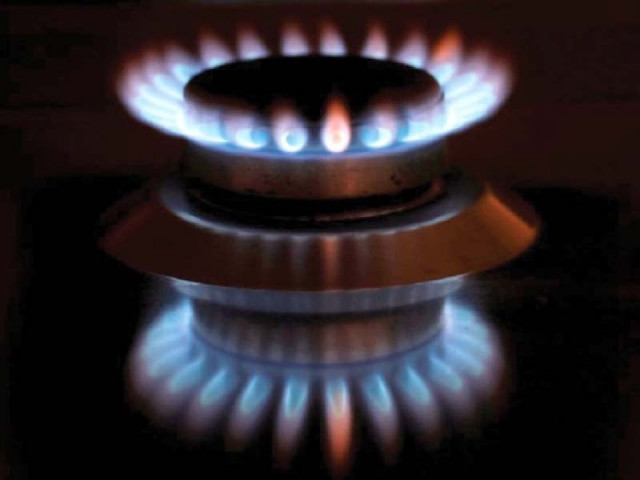Gas sector’s debt grows as prices kept low
Govt proposed 300% hike in gas prices, but it could not be adopted

The government’s policy to keep gas prices artificially low is going to extensively hurt the energy sector where circular debt is continuously growing due to the reliance on liquefied natural gas (LNG) imports.
In September, the federal government proposed a plan to increase gas prices by over 300% but it could not be executed because of fears of a political backlash.
According to officials, piped gas price is currently Rs1,283 per million British thermal units (mmbtu) but the cost of liquefied petroleum gas (LPG) is significantly higher at Rs4,041 per unit.
Though LPG is said to be the poor’s fuel, but its consumers are paying around three times the price of natural gas.
According to sources, receivables in the revenue requirement of the public gas utilities stand at around Rs550 billion, of which Sui Northern Gas Pipelines Limited (SNGPL) is facing a shortfall of about Rs360 billion.
These arrears can be recovered through an increase in gas sale prices for the consumers.
The sale price should be raised by around Rs1,200 per mmbtu while the average price was being kept artificially low at Rs600 per mmbtu, officials said.
They emphasised that the price would have to be increased by more than double till such time the arrears were cleared and later the price may be rationalised.
Average sale price has only been raised by around 10% since 2019-20 while the revenue requirement of utilities has gone up by around 45% since then.
“This situation is unsustainable, unless it is tackled swiftly, our entire energy sector will be at risk of default,” an official said, adding that it would also make the re-gasified LNG supply chain unviable.
“No country can continue selling gas at highly subsidised rates,” the official remarked.
The deficit is expanding rapidly as the RLNG import and delivery price has exceeded Rs4,000 per mmbtu while it is being sold at a minimal cost to the domestic consumers.
The cabinet had decided over three years ago that the cost of RLNG sold to the residential consumers would be included in the LNG price notified by the Oil and Gas Regulatory Authority (Ogra) but the decision could not be implemented.
The debt crisis is against the spirit of an agreement reached with the International Monetary Fund (IMF), under which energy subsidies should be removed. Instead, there is growing concern that the gas sector’s circular debt, which has crossed Rs1 trillion, will match the power sector’s debt level soon.
Receivables of Pakistan State Oil (PSO), which is importing LNG from Qatar, have started rising again and have swelled to Rs616.4 billion. A key component in the company’s receivables is the delay in payments for LNG supply to the gas utilities.
Its receivables from SNGPL have gone up to Rs385.4 billion on account of LNG supply.
Earlier, the power sector was the key defaulter of PSO owing to the absence of payments for furnace oil and high-speed diesel supplies.
Officials pointed out that SNGPL had been unable to recover its outstanding dues for gas supply to the subsidised sectors. It is providing LNG to the domestic consumers in winter on the government’s directives to overcome the gas crisis but the absence of a legal framework stands in the way of recovery of bills.
Secondly, gas prices have been kept low to avoid a political uproar.
The previous government of Pakistan Tehreek-e-Insaf (PTI) alleged that the Pakistan Muslim League-Nawaz (PML-N) in its earlier tenure had failed to jack up energy rates for four years, which led to the circular debt pileup. Consequently, the PTI made a substantial increase in energy tariffs.
Published in The Express Tribune, December 3rd, 2022.
Like Business on Facebook, follow @TribuneBiz on Twitter to stay informed and join in the conversation.



















COMMENTS
Comments are moderated and generally will be posted if they are on-topic and not abusive.
For more information, please see our Comments FAQ